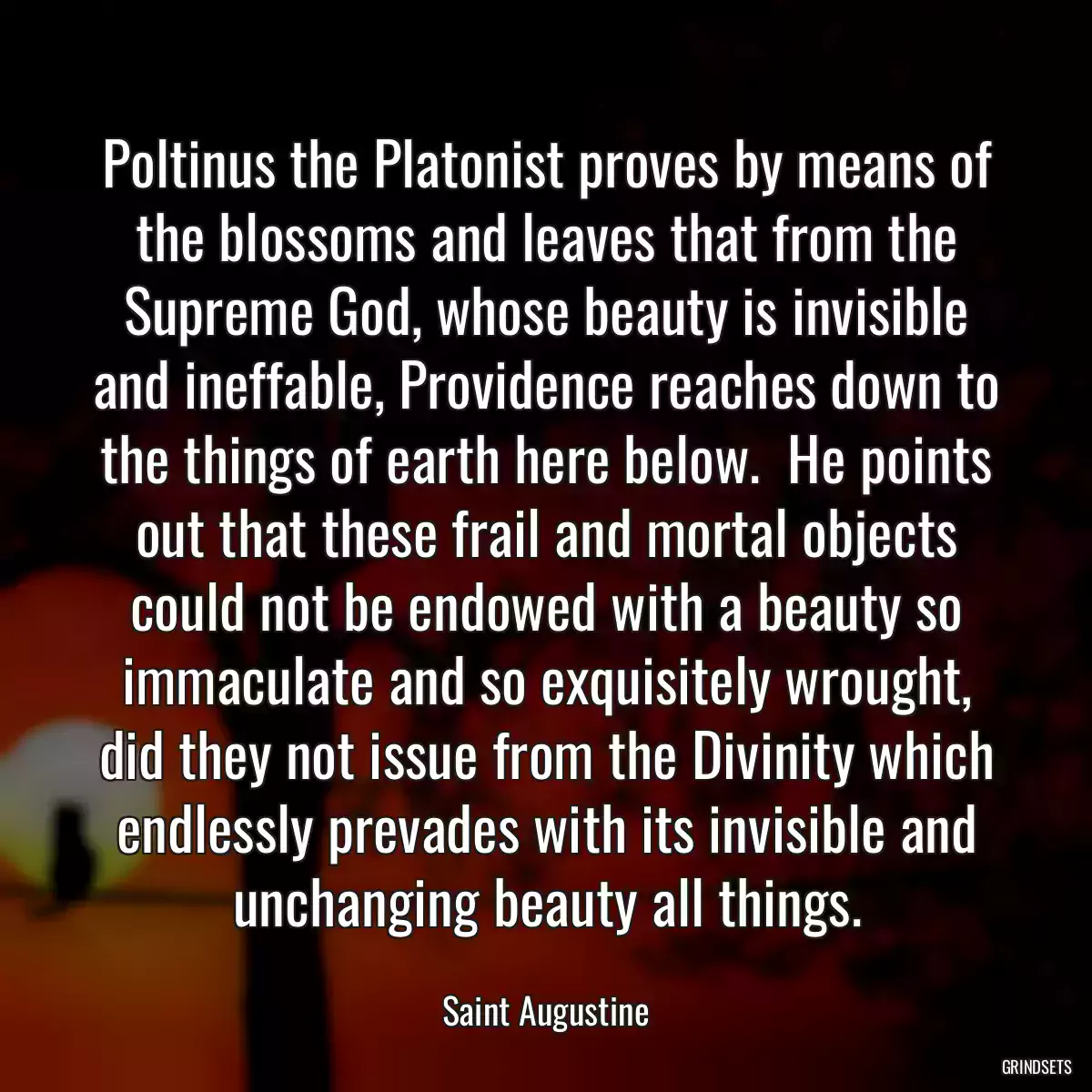
Poltinus the Platonist proves by means of the blossoms and leaves that from the Supreme God, whose beauty is invisible and ineffable, Providence reaches down to the things of earth here below. He points out that these frail and mortal objects could not be endowed with a beauty so immaculate and so exquisitely wrought, did they not issue from the Divinity which endlessly prevades with its invisible and unchanging beauty all things.